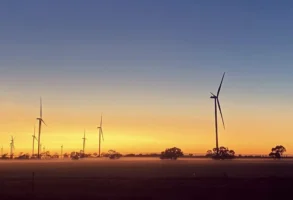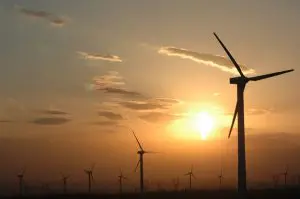Road traffic and even snoring partners are much more likely to be blamed for sleep disturbances than wind turbines – which have virtually no measurable impact on sleep patterns – according to the findings of an Australian research study.
Researchers from Flinders University surveyed and compared the experiences of South Australian residents living near wind turbines to those living in other rural areas, finding there was virtually no difference in reported sleep disturbance.
The findings will be presented at the Australasian Sleep Association’s Sleep DownUnder 2021 conference being held virtually this week, and are based on the responses of more than 500 residents in South Australia.
The study found that residents living within 10km of a wind farm reported more instances of sleep issues caused by other sources, including insomnia, stress and snoring partners, than issues attributed to the wind farm.
“In the survey, we found that the proportion of residents living near wind farms who reported moderate-to-severe sleep difficulties for any reason was not different compared to those living in quiet rural areas,” said lead author Georgina Rawson, from the Flinders Health and Medical Research Institute.
“Of all residents living within 10km of a wind farm who responded to the survey, only 0.3 percent attributed sleep disturbance to wind farm noise, which was no higher than the rate of sleep disturbance attributed to road traffic or other noise sources (2.2%) and less than sleep disturbance attributed to any other cause (16.1%), such as insomnia.”
The researchers found that living by a busy road was likely to cause higher rates of reported sleep disturbance, leading to almost double the rate of complaints of lost sleep compared to those living near a wind farm.
“Overall, within the survey group there was a low prevalence of noise-related sleep complaints. Consequently, much larger surveys would be required to better estimate the prevalence of wind farm noise-related sleep impacts on nearby communities,” lead investigator Professor Peter Catcheside said.
Researchers from Flinders University have also presented the results of an additional lab-based study that examined the impact of replicated wind turbine noise on sleeping patterns.
During the study, participants were exposed to replicated wind turbine noise across consecutive nights of sleep, with the noise played during different periods of the day – including at random periods – to simulate the behaviour of real-world wind turbines.
The study found the noise caused no measurable impacts on traditional measures of sleep behaviour, including the time taken to fall asleep and the length of time spent asleep.
“Despite no effect being observed using our traditional measures of sleep in this study, work is still ongoing to test for sleep disruption effects in more sensitive sleep measurements and with wind farm noise compared to road traffic noise,” Flinders University PhD Candidate Tessa Liebich said.
Complaints about the perceived impacts of wind turbine noise have been a contentious issue throughout the history of wind farm developments. While research, like the Flinders University studies, show that there are few actual physiological impacts caused by the operation of wind turbines, it hasn’t prevented wind farms from becoming the subject of noise complaints from nearby residents.
Studies suggest that the underlying complaints are often related to inadequate consultation with nearby residents during the development of the wind farm, as well as some residents missing out on financial payments when turbines are located on neighbouring properties but not their own.
A number of wind farm developments are currently subject to legal proceedings, including a group of residents living nearby to the Bald Hills wind farm in Victoria, who are seeking compensation for health and financial damages blamed on the wind farm.
Final arguments for the Bald Hill case were heard this week, with the case awaiting the final judgement of the Victorian Supreme Court, which is expected to be delivered in coming months and could set a precedent for disgruntled residents to receive compensation from wind farm operators.










